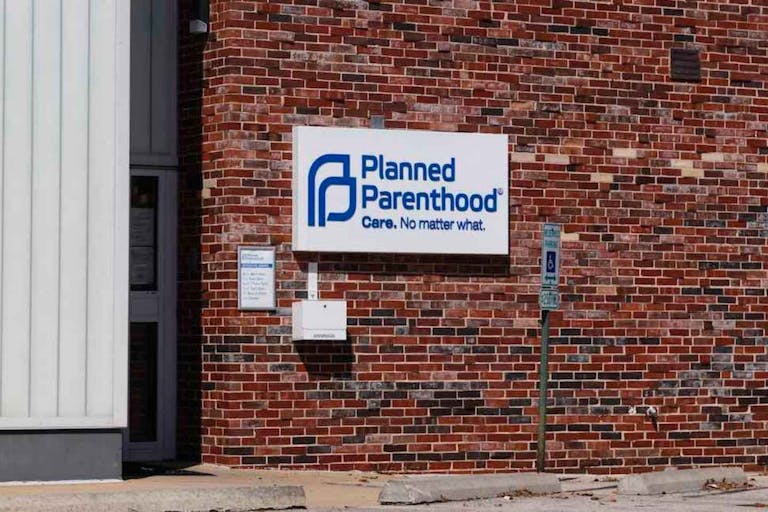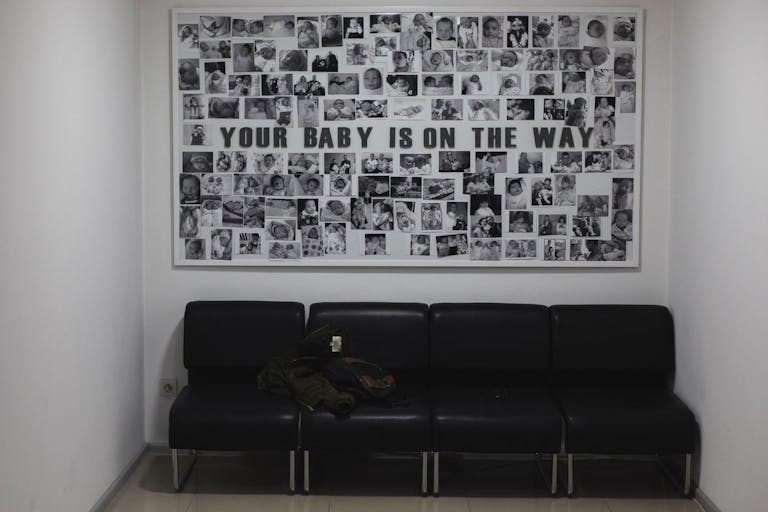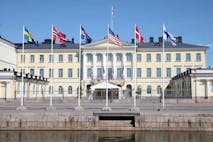
Woman intentionally hit pro-life activist with her SUV at Planned Parenthood
Cassy Cooke
·
Australian couples are flocking to Georgia to rent women's wombs through surrogacy
Australian couples are increasingly seeking surrogates from the impoverished country of Georgia, where women often turn to surrogacy to make money to provide for their families. Women are paid about three times the average annual salary to rent their wombs to people seeking a baby.
Georgia has become one of the most popular destinations for people pursuing surrogacy.
Surrogacy is cheaper in Georgia than in other countries, including the United States, but women are paid up to three times the average yearly salary in Georgia to be surrogates.
Many of the women are not Georgian, but have gone to Georgia from the Philippines to earn money as surrogates.
Commercial surrogacy is not legal in Australia. It is only permitted there for "altruistic" reasons.
One surrogacy business in Georgia has said that half of its 250 clients are Australian.
Meanwhile, scandals have erupted surrounding egg trafficking and forced abortion in Georgia surrogacy rings.
The Australian Broadcasting Corporation (ABC) covered the growing issue of Australians seeking surrogate mothers from the impoverished country of Georgia, where many women turn to surrogacy as a means to provide for their children. It is believed that at least 400 Australians have purchased children there, despite the scandal-ridden background of the Georgian fertility industry. Keti Gotsiridze, owner of a fertility clinic in Georgia, said nearly half of its 250 clients are Australian.
One mother, Liz Tripodi, who used the Georgian surrogacy industry to have children, explained to ABC, "For my husband and I, it was a 13-year journey with infertility. We literally tried every treatment possible and spent hundreds of thousands of dollars. The girls are the light of our lives — we wish we'd gone to Georgia and done it [surrogacy] sooner."
Sam Everingham, the director of Growing Families, a not-for-profit that supports people who are considering surrogacy, said the boom in Georgia is unsurprising as other countries tamp down on foreign commercial surrogacy. "This is an ongoing pattern we've seen, where people rush to a country to engage for surrogacy, demand outstretches supply, and the government cracks down — we've seen it in India, Argentina and Thailand," he said. "There's too much evidence of exploitation of surrogates by agencies who are just out there to make a buck, and we see a lot of intended parents who are really desperate to have a family, and they will turn a blind eye to what's going on behind the scenes."
Many surrogates in Georgia are not actually Georgian, but have travelled there from countries like the Philippines, lured by the promise of a big payout. "There are no jobs at home. The salary is low, it's not enough for three children," Raziel, a 33-year-old surrogate mother from the Philippines, told ABC. She said she wasn't allowed to hold the baby after giving birth. "When I gave birth, I was feeling mixed emotions — because I carried [him] for so long, I want to hold him, but it's best for the parents."
Surrogacy is riskier for both women and babies than most people realize
Georgian women are also choosing to be surrogates, as doing so can net them three times as much as the average yearly salary there. "For now, I can't work — I have a child of four years and we are at home," Salome Svanidze said. "Unfortunately, it's quite difficult to earn this amount of money in Georgia."
Australians may be choosing to rent wombs in Georgia because it is significantly cheaper than in other countries that allow commercial surrogacy, like the United States. Furthermore, in Georgia, the intended parents' names are placed directly on the birth certificate, making the process easier to legally navigate than in other countries.
"It's a very unstable landscape for surrogacy globally," Everingham said. "I'm concerned the industry could collapse in Georgia in the next few years; I don't think countries like Georgia have the capacity to do this on an ethical scale."
Georgian politicians have attempted to put an end to surrogacy, but it continues to be a thriving business, particularly during the war in Ukraine. Previously, Ukraine had been one of the most popular destinations to obtain surrogates; like Georgia, Ukrainian women are likely to live in poverty, and will turn to surrogacy as a means to provide for their families.
Surveys have found that just five percent of people renting Georgian women as surrogates are Georgian themselves, meaning the overwhelming majority are foreigners. The number of babies born to surrogates has doubled in recent years, with most of the women serving as surrogates being single mothers living in poverty. This is one of the major reasons so many have condemned surrogacy as exploitative and akin to slavery; wealthy couples take advantage of a vulnerable woman's poverty and desperation, and literally purchase her body for their use.
It is also disturbing to know that Australians, and other foreigners, are continuing to flock to Georgia, despite scandals causing international headlines. One of them included a shocking human egg trafficking ring discovered in Georgia through a Chinese gang, using women from Thailand who had been trafficked into the country. ABC notes that agency owners have been caught embezzling money from surrogates, and another agency was accused of leaving babies in the hospital for days, as well as coercing a surrogate mother to have an abortion after the parents refused to pay. And when it comes to the fertility industry, Georgia is far from alone. As Live Action News previously reported,
In 2023, police raided a fertility clinic in Greece, where 169 vulnerable women from countries including Moldova, Ukraine, Romania, Georgia, and Albania were forced to be egg donors and surrogates and held in “safe houses” under “controlled conditions” until the surrogacy process was complete. A “baby factory” was also discovered in Nigeria in 2019, with women there having been kidnapped, trafficked, and raped; once impregnated, their babies were stolen from them and sold. In China, women are being lured from Russia and Belarus to donate their eggs, only to undergo excruciatingly painful medical procedures without anesthesia in underground, makeshift clinics.
Yet none of these scandals is enough to dissuade would-be parents from purchasing women and children. Any exploitation can be overlooked, any commodification justified, when children are turned into a right that people are entitled to, rather than human beings with their own rights.
Live Action News is pro-life news and commentary from a pro-life perspective.
Contact editor@liveaction.org for questions, corrections, or if you are seeking permission to reprint any Live Action News content.
Guest Articles: To submit a guest article to Live Action News, email editor@liveaction.org with an attached Word document of 800-1000 words. Please also attach any photos relevant to your submission if applicable. If your submission is accepted for publication, you will be notified within three weeks. Guest articles are not compensated (see our Open License Agreement). Thank you for your interest in Live Action News!

Cassy Cooke
·
Politics
Nancy Flanders
·
Politics
Rebecca Oas, Ph.D.
·
Abortion Pill
Angeline Tan
·
International
Bridget Sielicki
·
International
Angeline Tan
·
Politics
Cassy Cooke
·
Analysis
Cassy Cooke
·
Activism
Cassy Cooke
·
Pop Culture
Cassy Cooke
·
International
Cassy Cooke
·